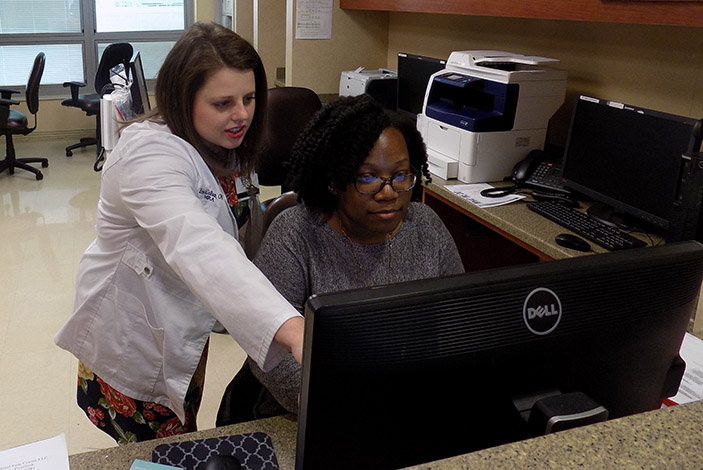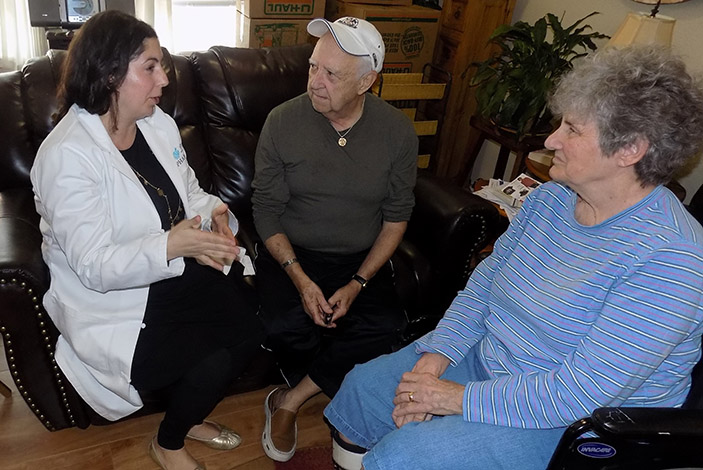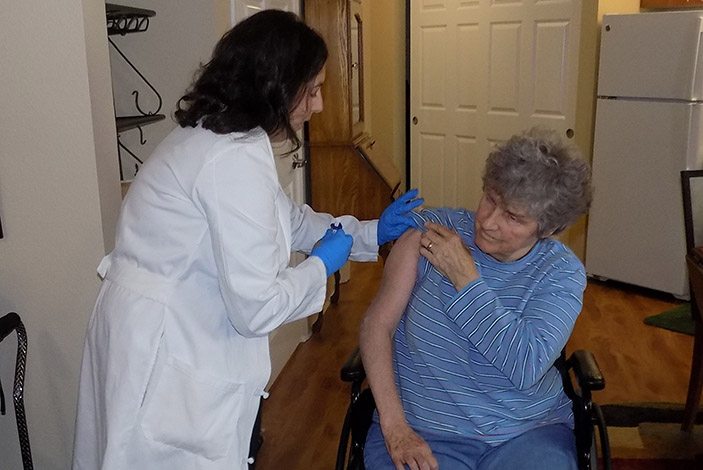Emory Johns Creek Hospital (EJCH) has partnered with Lily’s Pharmacy to enhance post-discharge medication management for patients.
Jennifer Shannon, PharmD, BCPS, owner of Lily’s Pharmacy works with EJCH to provide pharmacy services to patients transitioning from the hospital to home. Patients can opt in the free service if they take more than five medications or have been hospitalized more than once in the last 30 days.
Hasan Shabbir, MD, Chief Quality Officer at EJCH, regularly refers patients to the program. He says the service helps to close the gap in an often vulnerable post discharge period for many patients.
"Our partnership with Lily’s pharmacy helps reduce patients’ readmission rates to the hospital and offers a great resource to them and their caregivers," says Shabbir.
A group of clinically trained pharmacists who specialize in ambulatory medicine are on call 24-hours a day at Lily’s to answer questions. If a patient signs up for the program, Lily’s pharmacists review the patient’s medical records, labs, medication lists, progress notes and discharge summary.
Adedapo Odetoyinbo, MD, Chief Medical Officer at EJCH, says the hospital signed a preferred provider agreement in 2014 with the pharmacy. The program launched in part, based on recommendations from EJCH’s medication reconciliation program.
"Our medication reconciliation assistants identified that our highest risk patients – elderly and those on multiple medications with limited mobility – did not always fill their prescriptions after leaving the hospital," says Odetoyinbo.
EJCH’s pharmacy department also found those patients used multiple pharmacies which resulted in a lack of coordination and duplication of medications. Alishia Davis, CPhT, EJCH Medication Reconciliation Assistant recommends the program to patients before they’re discharged.
"Some patients may not fully understand or remember their medication regimen when they leave the hospital," says Davis.
Davis says if patients feel knowledgeable about their medications, they are more likely to adhere to recommended plans and properly manage their chronic conditions.
Shannon says more than 130 pharmacy interventions have taken place and more than 30 major life-saving interventions have been made since the program started.
Lily’s pharmacy offers at home delivery and consultations for patients who live within a 10-mile radius of the pharmacy. Shannon also uses technology like FaceTime to provide additional counseling to patients if needed.
Anita Rich, BSN, RN, CHFN, Heart Failure Coordinator at EJCH says the hospital’s partnership with Lily’s adds another layer of safety for patients and provides personalized one-on-one care.
"The pharmacy offers to deliver medications to patients at their bedside prior to discharge," says Rich.
"They also work to cut medication costs by matching prices and finding less expensive alternatives and discount programs for uninsured or underinsured patients."
Cathy Crumrine, BSW, EJCH Social Worker, says Lily’s pharmacy is an asset to Emory’s patient population and the Johns Creek community.
"The pharmacy carries useful items for patients, such as nebulizers and pulse oximeters, which makes the transition home less stressful for patients and families," says Crumrine.
After a patient is discharged from the hospital, Shannon and her team follow up with patients the next day.
"We also check in with patients 72 hours after discharge, a week later and a month later to ensure we’re consistently communicating with them," says Shannon.
Shannon wants to extend the program to primary care providers, so they can offer this service to patients during annual checkups. She hopes this will help avoid more adverse drug events and save more lives.
"They’re more than just patients to us, they’re our neighbors," says Shannon. "We want to educate them about their medications and conditions so they can live as healthy of a life, as possible."



